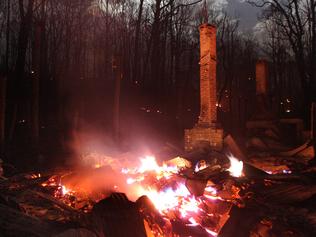Joe Meek and the Tornados: Telstar, instrumental that blew us away
Inspired by the launch of the US Telstar satellite in 1962, Joe Meek wrote a striking instrumental piece by that name.

Versailles, southwest of Paris, is famous for its historic palace, once France’s seat of royal power, for the so-called Tennis Court Oath — a defining event of the French Revolution — and for a certain treaty. But its place in music is mostly overlooked.
But at the end of World War II, as Parisians celebrated the liberation of their city from German barbarians, delighted locals filled its streets as church bells rang out from the Mairie de Versailles — its town hall. But a look at photographs of that grand building show that it appears not to have a bell tower. Why would it need one? The sounds the celebrating French heard that day came from one of the first electronic “organs”.
The Versailles town hall “bells” were an early development of electric-powered music, which became the breakthrough Clavioline keyboard, invented in Versailles. But it was a temperamental Englishman, Robert Meek, who took the Clavioline to the world.
Calling himself Joe, the ingenious Meek — fascinated by electronics since childhood — operated radars during his national service and worked at an electricity company while experimenting with recording techniques, developing ways to distort and compress sounds that were unheard of — indeed, unimagined.
As an audio engineer he was involved in several chart hits of the mid-1950s, including Humphrey Lyttelton’s Bad Penny Blues on which Meek compressed the sound of the piano. Twelve years later Paul McCartney lifted the piano part — compression and all — and replicated it to kickstart Lady Madonna.
Meek was an extreme, often antagonistic character — possibly with an undiagnosed mental health disorder — and few people could work with him. Being gay in a homophobic culture would not have helped.
He believed in an afterlife and repeatedly set up microphones in cemeteries at night, once catching what he thought was the sound of the departed. It was the sound of local cats — but not the jazz variety.
Musician and songwriter Geoff Goddard entered Meek’s orbit and offered up a maudlin song titled Johnny Remember Me, which Meek recorded with John Leyton and that soon topped the British charts.
Things were changing in Britain. As Leyton’s song did brisk business, little-known backbencher Margaret Thatcher was appointed a parliamentary undersecretary in Harold Macmillan’s government, the youngest woman so promoted. But Meek’s sexual orientation was illegal and he would be fined for “importuning”.
Inspired by the launch of the US Telstar communications satellite in July 1962, Meek wrote a striking instrumental piece by that name that was recorded with his regular studio backing band, the Tornados — and with Goddard, uncredited, playing its distinctive Clavioline melody. Meek could play no instruments, nor write music.
Telstar, recorded at Meek’s modest flat in north London’s Holloway Road that doubled as a studio, was an instant sensation, rising to No 1 across the world, becoming only the second British single to top Billboard.
But while Meek produced other hits, lasting success escaped him.
And his mental state was deteriorating. He believed dead US singer Buddy Holly spoke to him regularly, and that other record companies hid microphones in his flat to eavesdrop on his sessions. When American record producer Phil Spector — the man to whom Meek was often compared — called once, Meek is said to have abused Spector for stealing his ideas. Curiously, both would become killers.
As well, lightweight French composer Jean Ledrut filed suit absurdly claiming that Telstar had been based on his soundtrack to a 1960 film called Austerlitz, tying up the royalties from Telstar as Meek went broke.
On February 3, 1967 — the eighth anniversary of Holly’s death — Meek cracked. He burned some letters in his bath and handed his studio assistant a note that read “I’m going now. Goodbye” and asked the young man to fetch Violet Shenton, his landlady.
She lived downstairs and, while they got on well, had been known to bang a broom on her ceiling when the noise became too much. Meek would just turn up the volume.
This time he shot her dead — and Meek then shot himself.
Three weeks later the courts ruled in his favour and the Telstar fortune was released.
Twenty years later, Thatcher had been prime minister for eight years of a Britain that had changed in ways that might have made life more tolerable for the likes of Meek. When asked if she ever listened to pop music, Thatcher said she had liked the “tuneful” Beatles to whom her children had listened, but then recalled a favourite: “I remember Telstar — lovely song. I absolutely loved that. The Tornados, yes.”




To join the conversation, please log in. Don't have an account? Register
Join the conversation, you are commenting as Logout